Are you battling constipation? Despite how common this affliction may be, it can be incredibly uncomfortable and frustrating. Thankfully, some remedies can provide relief. In this post, we’ll explore the use of apple juice for constipation relief. Read on to learn more.
What Are the Symptoms of Constipation?
#1. You Poop Less Than 3 Times a Week
Experts say that going number two fewer than three times a week is cause for concern. But, if it’s happening to you regularly, it may be time to see a doctor to rule out underlying conditions like IBS or celiac disease, which can both cause constipation.
#2. Your Stools Are Hard and Clumpy
If your stool is dry, crumbly, and difficult to pass, it’s a sign that you’re constipated. When stools spend too much time in the large intestine and colon, the excess water gets absorbed, making them hard and dry.
#3. Passing Stool Causes Sharp Abdominal Pain
In extreme cases, constipation causes stool to back up in your intestines, leading to sharp abdominal pain or even rectal bleeding. The pain is caused by gas buildup or contractions in your intestinal muscles as they try to release the stool.
#4. You Have Straining and Sighing During Bowel Movements
It could be a sign of severe constipation if you have to bear down or use excessive force on your stomach muscles to get things moving. This is because muscles in the intestines work in sync with each other like an assembly line to move food along—if one part isn’t working correctly, it can throw off the whole process, causing blockages further down the line that require extra effort to pass through.
#5. Your Belly Looks Swollen or Bloated
If you feel like your stomach is always bloated or distended—even if you just ate—it could be because you’re carrying around extra stool that’s backed up in your intestines due to constipation. Unfortunately, this backup can also cause gas and indigestion.

What Causes Constipation?
Not enough fiber in your diet.
One of the leading causes of constipation is not enough fiber in your diet. Foods like fruits, vegetables, whole grains, and legumes are all great sources of fiber. If you’re not getting enough of these foods in your diet, likely, you’re not getting enough fiber, which can lead to constipation.
Not enough water in your diet.
Another common cause of constipation is not enough water in your diet. When you’re dehydrated, your body doesn’t have the moisture it needs to make your stool soft and easy to pass. As a result, you may experience hard, dry stools that are difficult to pass.
Overeating dairy.
For some people, overeating dairy can lead to constipation. This is because dairy products like milk, cheese, and yogurt are all high in fat and low in fiber. This combination can make it difficult for your body to digest them properly, leading to chronic constipation.
Overeating processed food.
Processed foods like white bread, white rice, and pasta are also low in fiber and high in fat. This combination can make it difficult for your body to digest them properly and lead to bad bowel habits such as chronic constipation.
Stressful lifestyle.
A stressful lifestyle can also contribute to constipation. When stressed out, your body goes into “fight or flight” mode, which can divert blood from your digestive system and make it more difficult for your body to digest food properly. As a result, you may experience constipation.

Does Apple Juice Help With Constipation?
Many people swear by the benefits of apple juice for constipation relief. Apples’ high water and fiber content helps soften stools and maintain regular bowel function. Additionally, apple juice contains a sugar called sorbitol, which has a laxative effect. However, there is limited scientific evidence to support these claims.
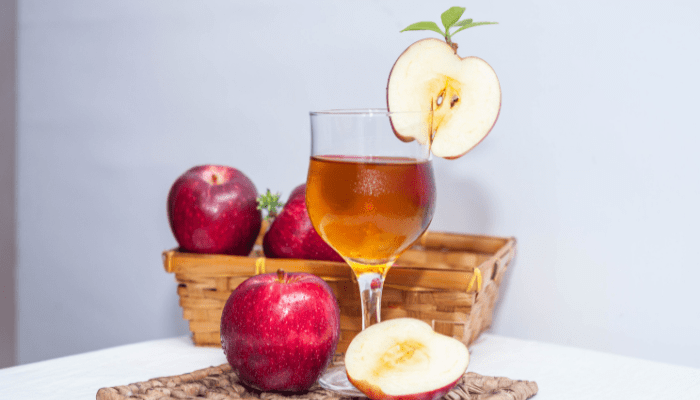
The Science Behind Apple Juice and Constipation Relief
As we mentioned, apples’ high water and fiber content is thought to help soften stools and stimulate bowel movements. The soluble fiber in apples binds with water in the intestines, which helps bulk up stools and makes them softer and easier to pass. Additionally, the insoluble fiber when consuming apples helps add bulk to stools and speeds up the time it takes for food to travel through your digestive system.

Apples also contain a type of sugar called sorbitol. Sorbitol is a sugar alcohol that your body can’t entirely absorb. When it reaches your large intestine, it pulls water into your intestines and acts as a laxative. However, sorbitol isn’t as effective as other types of laxatives, such as MiraLAX (polyethylene glycol 3350), Dulcolax (bisacodyl), or Milk of Magnesia (magnesium hydroxide).

How to Use Apple Juice as a Natural Laxative?
If you’re looking for a natural way to relieve constipation, you may want to try drinking pure apple juice. Start by drinking 8 ounces (240 ml) of 100% pure unsweetened apple juice on an empty stomach. You may need to drink more or less depending on your constipation.
If you don’t see results within 12 hours, increase your intake to 16 ounces (470 ml). If you still don’t see results after 24 hours, try again in a few days. Drink plenty of fluids throughout the day to stay hydrated. Avoid juice with added fiber or sweeteners like sorbitol, as these can worsen constipation.
Eating a balanced diet with plenty of fiber-rich foods like whole grains, fresh fruits, vegetables, and beans is also essential. And be sure to get regular exercise — even just 30 minutes per day can help relieve constipation by stimulating your digestive system.
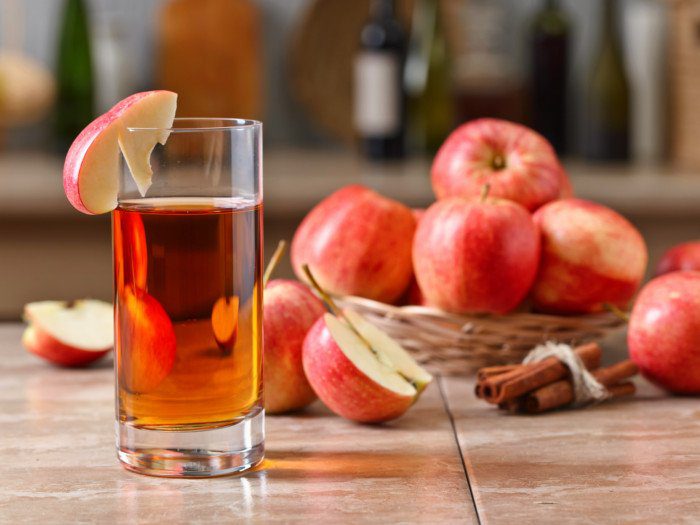
How Much Apple Juice Do You Need?
The answer may vary depending on age, weight, and other factors. A general rule of thumb is to drink 8 ounces of 100% unsweetened apple juice once or twice daily until your constipation improves. You can also try prune juice, which has a higher sorbitol content than apple juice.
It’s important to remember that while drinking apple juice or prune juice may help relieve your constipation, it’s not a long-term solution. These juices can cause intestinal discomfort and diarrhea if you drink too much, so it’s best to use them only as needed. If your constipation persists despite trying home remedies like drinking apple or prune juice, contact your doctor to rule out any underlying medical conditions.
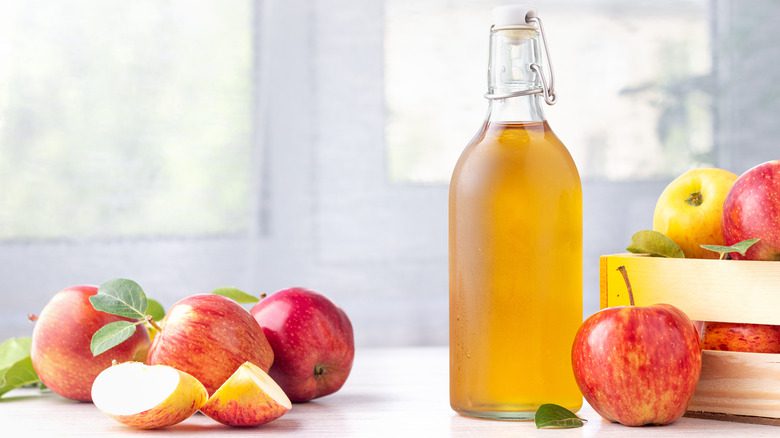
What Are the Potential Side Effects?
1. Diarrhea: While apple juice may help with constipation, it can also cause diarrhea in some people. This is because apples contain a sugar called sorbitol, which can act as a laxative and cause loose stools. If you have diarrhea, drink plenty of fluids and avoid high-fiber foods until your symptoms improve.
2. Stomach Pain: Some people may experience stomach pain after drinking apple juice, especially if they are not used to the high acidity content. To avoid stomach pain, drink apple juice in moderation and dilute it with water if necessary. You can also take an over-the-counter antacid to help neutralize the acid in your stomach.
3. Tooth Decay: The high acidity content in apple juice can also lead to tooth decay. To protect your teeth, drink apple juice through a straw or brush it immediately after consuming it. It would help if you also visited your dentist regularly to ensure that your teeth are healthy and robust.
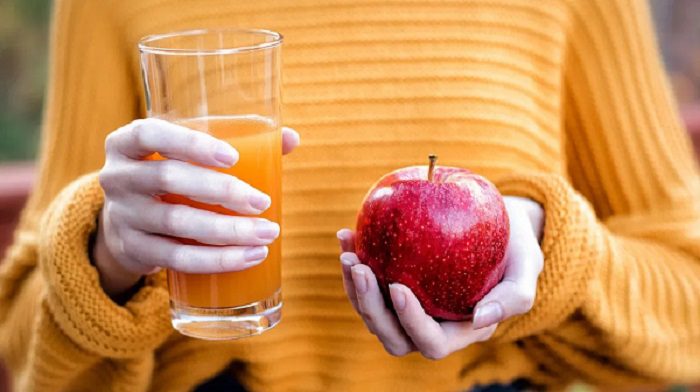
Other Fruit Juices Great for Constipation Relief
1. Prune juice. This actual fresh fruit juice has long been touted as a home remedy for constipation, and with good reason! Prunes are a natural laxative, and their high fiber content helps keep things moving smoothly. However, if the taste of prune juice is a little too intense for you, try diluting it with some sparkling water or adding it to a smoothie.
2. Pear juice. Like prunes, pears are also a great source of fiber. They also contain sorbitol, a type of sugar alcohol that acts as a gentle laxative. Pears are also relatively low in fructose, so they’re less likely to cause stomach upset than other fruits. For a bubbly treat, you can enjoy pear fruit juice or mix it with some ginger ale or club soda.
3. Kiwi juice. This juicy little fruit is not only delicious—it’s also packed with beneficial nutrients that are great for gut health known as one of the best fruit juices. Kiwis contain both soluble and insoluble fiber, as well as actinidain, an enzyme that aids in digestion. Kiwi juice is also relatively low in natural sugars, so it’s less likely to cause gastrointestinal distress than other fruit juices on this list.
4. Orange juice. Oranges are another excellent source of soluble fiber, which helps to keep things moving along smoothly in the digestive tract. They also contain citric acid, which helps break down food and aid digestion. Choose an orange juice that is 100% pure with no added sugars or sweeteners for the best results.
5. Spinach juice. Spinach is rich in vitamins and minerals like iron and magnesium, both of which are essential for gut health. It’s also a good source of soluble fiber, which helps to bulk up stool and promote regularity. For an added boost, try juicing spinach with kale or chard for extra nutrients and constipation-busting power!
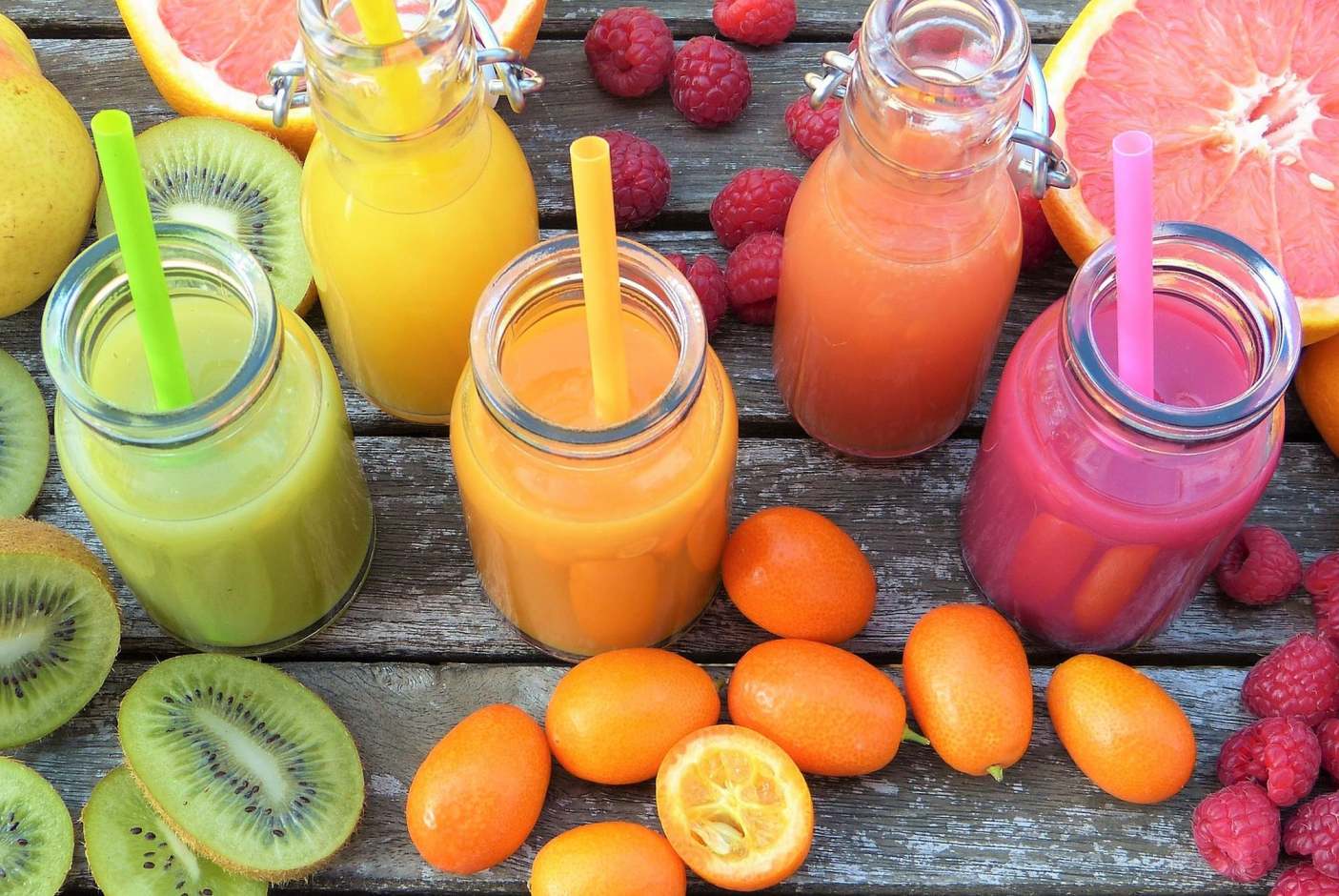
Tips to Prevent and Treat Constipation
1. Eat more fiber-rich foods. This includes fruits, vegetables, whole grains, and beans. A high-fiber diet can help to soften stools and make them easier to pass.
2. Get regular exercise. Exercise helps maintaining regular bowel movements and can help to prevent constipation.
3. Stay hydrated by drinking plenty of fluids. This will help keep the intestines lubricated and make it easier for stools to pass through.
4. Avoid foods that can contribute to constipation, such as dairy products, red meat, and processed foods.
5. Add natural stool softeners to your diets, such as prunes or psyllium husk. These can help to add bulk to the stools and make them easier to pass.

Final Thoughts
Apple juice can be a great remedy for constipation relief due to its high acidity content and soluble fiber. However, it’s important to drink apple juice in moderation and to avoid potential stomach upset and tooth decay by diluting the drink or brushing your teeth afterward.
Drinking fruit juices of prune, pear, kiwi, orange, and spinach can also help with constipation relief. Finally, it’s important to practice healthy habits such as eating more fiber-rich foods, regularly exercising, and staying hydrated to help prevent constipation. You can find relief from uncomfortable constipation symptoms with the right combination of diet and lifestyle changes.
Frequently Asked Questions
How much apple juice should I drink for constipation?
Offer your child at least four to six ounces of prune, apple (or orange) juice daily. The benefits of drinking fresh fruit are more fiber and vitamins than packaged products like cordials or Simply Juice boxes.
Does apple juice relieve constipation?
If your child is experiencing constipation, it might be worth giving them a sip of raw apple juice to see if that helps. This fruit has been shown in studies with children who suffer from this condition due to its high ratio of fructose and sorbitol content.
What can I drink to make constipation go away?
Ginger tea is a great way to get your digestive system working at its best! The hot water in the drink will stimulate digestion and relieve people who suffer from constipation.
How do you stimulate a bowel movement?
You could use glycerin or bisacodyl suppositories, enemas with rated water (in case the rectum is too dry), or warm prune juice drinking for incentives – be sure not to go too far by giving these drinks as dieting methods because it’s important to maintain not only healthy intestines but also avoid constipation.




